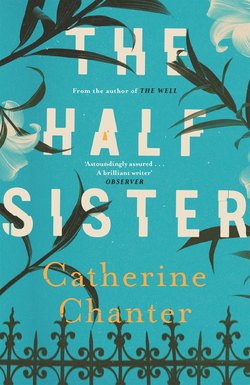Читать книгу The Half Sister - Catherine Chanter - Страница 10
На сайте Литреса книга снята с продажи.
ОглавлениеChapter Three
In the following week, between buying some new red slingback sandals for their week in the Maldives and preparing for a dinner party, the ridiculous, overwhelming sense of loss Diana experiences at unexpected moments bewilders her, swamping her without warning in a deluge of sadness, although she cannot name what she has lost, nor does she really have anyone to share her loss with. In the glasshouse, for instance, cutting lilies for the hall table, yellow pollen falls on her cream mohair jumper and she realises that moment will be stained for ever by the death of her mother. Having walked away from home long ago, she never expected this death to matter so much. It is some days later that the idea comes to her that she can invite her half-sister to stay after the funeral; the boy can come too if necessary. She shares the idea with her one and only confidante. Sally is something of a saviour; in her sixties, two facelifts down and loaded up with money from her last divorce when she took the chief executive of an oil company to the cleaners, her friend is a breath of fresh air, at least that’s how Edmund describes her.
At the kitchen table, the two of them flick through magazines and make small talk until Diana decides it’s late enough, opens a bottle of wine and shares her idea.
‘So that’s the plan. Reconciliation. What do you think? Good idea?’
‘Well, since you haven’t told me what it is you need to reconcile, it’s a bit hard to say. But, as my lovely niece would say, what’s not to like?’ says Sally. She points at the picture of the Red Sea on the front of the Sunday Supplement Travel Magazine. ‘If it goes well, you can pop along and help out the Israelis and the Palestinians.’
‘Reconciliation’s probably the wrong word,’ Diana says. ‘Apology, that’s maybe what I mean.’
Pulling out the chair next to her, Sally pats the seat. ‘Ah, so the truth will out. Come, sit, what sin did you commit, sister?’
‘Well, let’s say a sin of omission.’
‘How fascinating. I’ve often wondered when we get to the pearly gates how they’ll weigh up the bad things we’ve done and the good things we’ve failed to do. Which is worse, do you think?’
‘Seriously, I want to apologise because, when I walked out at sixteen, I knew what I was leaving her to. Perhaps I should have stayed and looked after her.’ The drizzle that falls against the window is soundless and smears the glass, the world outside as smudged and speechless as the past.
‘And look where you’ve ended up. I still suffer from kitchen envy every time I come here.’ Sally indicates the sheer beauty and technical perfection of the room in which they are sitting. ‘Well done you, you’re the one that got away.’ Emptying her glass, Sally finds her umbrella. ‘The only thing I’d say is that it can be very difficult making up. You get psyched up, throw yourself at their feet and then it all backfires. Believe me, I tried it several times with the ex. I’d say go for it, but it’s not a one-night stand, darling, it might takes months, years. And with those words of wisdom’ – Sally kisses Diana once on each cheek – ‘your priestess needs to hit the road and pray that God in the form of a policeman with a breathalyser isn’t waiting at the end of your fabulous drive.’
The next morning, Edmund wonders if Diana has changed her mind, now she’s had a chance to sleep on it. God knows he hopes so.
‘Valerie’s all I’ve got left,’ says Diana, swilling the Alka-Seltzer round the glass, watching the tiny white crystals cling to the edge, the vortex of water in the middle. ‘She’s the only one who can . . .’
Edmund spoons the dog’s meat from the tin into the bowl. ‘Who can what?’ It never fails to make him feel very happy, watching the dog eating his breakfast.
‘Oh, I don’t know. Clean slate, that sort of thing. Things that can be said, once and for all.’
Like Monty whining at the door, Edmund wants to get out. Although he and Diana have travelled widely in their three short years of marriage, the past is a country neither of them is particularly comfortable in visiting, the passports to those places hidden deep in drawers that are overfull and difficult to open. Hovering at the back door, he calls his questions through to her: ‘What sort of things?’
‘It’s a very long time ago and you don’t want to hear all that.’
He hugs her. ‘Silly billy,’ he says, ‘And here’s Monty.’ He ruffles the dog’s ears. ‘He doesn’t want you to be sad either, do you, Monty?’
The next day, Diana makes the call, almost as if Valerie is there beside her, sisters in their stockinged feet supporting each other through their memories, and she will say I am sorry and Valerie will say none of it was your fault, it was all his, I believe you. No reply. She has to leave a message because phones are not allowed in prison and Valerie is visiting Solomon.
